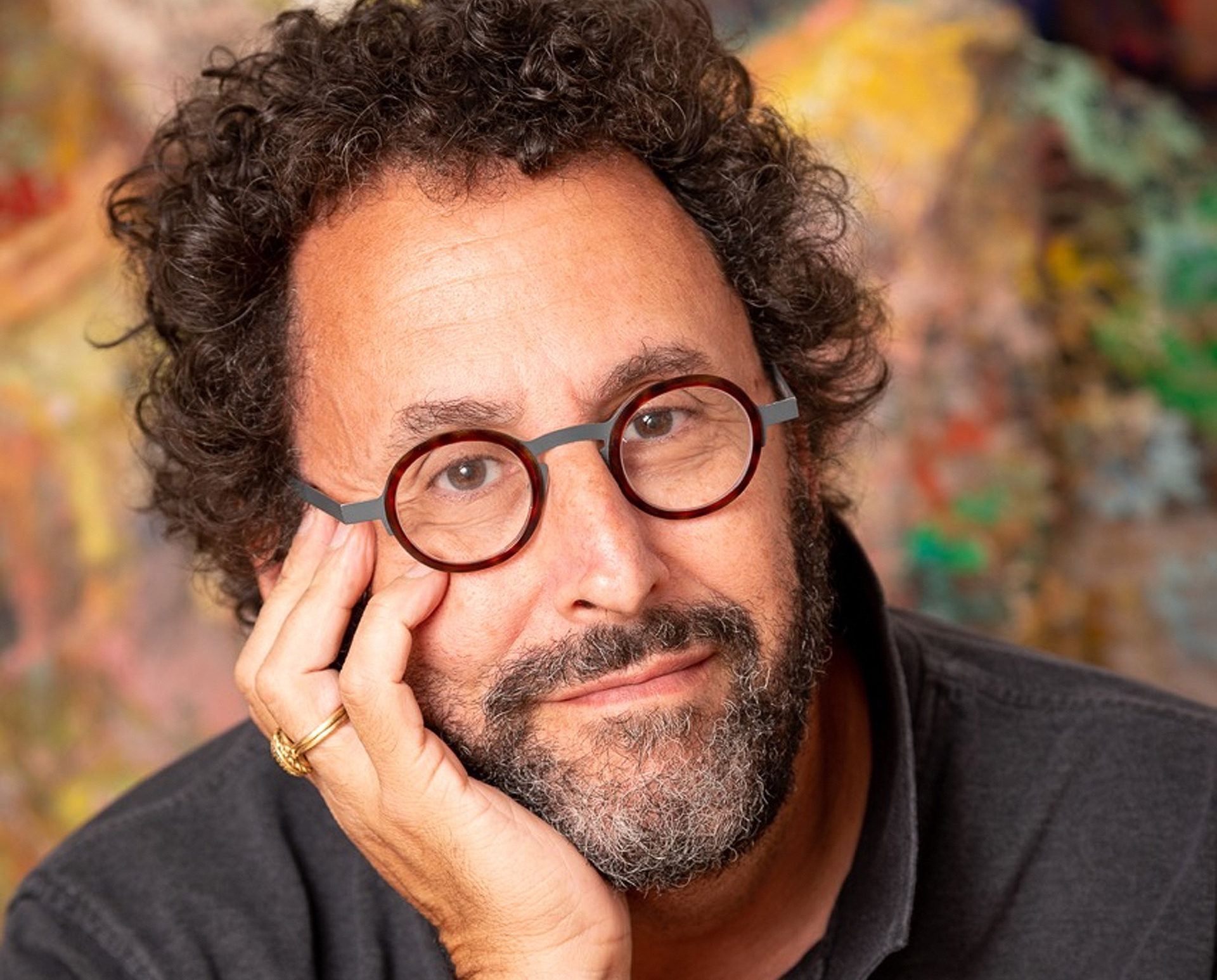Angels, Devil Are In The Details

You know it. He knows it. “Angels in America” is going to be Tony Kushner’s epitaph.
Within moments of its 1991 premiere, everyone who saw it knew it was an utterly original work. Although its subhead is “A Gay Fantasia on National Themes,” and it’s mostly about AIDS and homosexuality, which were still for the most part overlooked, it was so much more than a “Strike! Strike! Strike!” Clifford Odets moment in theater where the audience rose up as one to continue the battle cry.
Yes, the audience became involved, in love, and entranced by the characters in “Angels,” but the two-parter, “Millennium Approaches” and “Perestroika,” which approach the eight-hour mark when put together, also turned the rules of theater, if they exist, upside-down. The drama offers up regular people, families, celebrities, ghosts, angels, with actors playing more than one role, their lives sometimes intersecting — there really had never been anything like it. Part truth, part fantasy, part science fiction, part religion, it all melded together to create a heart-wrenching work that won the Tony Award for Best Play and earned a Pulitzer Prize for Kushner. It’s been continually in play, so to speak, since then, plus the miniseries, directed by Mike Nichols with Al Pacino and Meryl Streep, was honored with even more awards. A recent London and Broadway revival with Nathan Lane and Andrew Garfield took center stage in 2018.
But wait, there’s more.
Kushner is now in Hollywood again, working with Steven Spielberg for the third time on the writer’s updated, ultra-relevant reworking of “West Side Story.” And his first play, “A Bright Room Called Day,” written and first directed by Kushner in 1985 in New York City, heads to the Public Theater soon in a revisited version.
We had a chance to speak with Kushner about all of this from the movie set of “West Side Story.” He was out of breath, running around, which is probably the norm for someone as busy as he is, but was still charming and thoughtful in his answers.
“Angels” is so original — an overused word — combining politics, love, science, merging the past and future, fantasy, something that never existed before; and then to take on “West Side Story,” a tale as old as time, written and rewritten by others like Shakespeare and Arthur Laurents and Stephen Sondheim. What is it like to create something so innovative and now iconic, and then sprinkle your Tony Kushner flavor on something like “West Side Story” while still honoring the original?
Well, I’ve always done adaptations. An adaptation I did of Pierre Corneille’s “L’Illusion Comique” was performed pretty widely in the early ’90s. I’ve always loved spending time taking a deep look into works I really admire. I did a version of “The Dybbuk,” and two works by Bertolt Brecht, “The Good Person of Szechwan” and “Mother Courage.”
“West Side Story” is just a mind-boggling masterpiece, so when Steven asked me to do it, there are things about it that really appealed to me. Plus, it’s cool to spend time with those monumentally great songs.
I’ve always loved musicals — maybe not all musicals — but when you’re dealing with something so visceral, like what Sondheim writes, it’s elevated to a great art; it’s rich and complicated and gives you access to certain levels of feeling that are very hard to get to without music.
This is my third film with Steven. He’s someone who has this astonishing ability to tell stories through movement and with a camera. The idea of Steven working with a choreographer to tell a story kinetically — well, that was just tremendously appealing to me.
Let’s discuss “Bright Room (Revisited),” another story that meshes the past and present — obviously relevant today. [The play is set in the early ’30s in Germany, and follows an aging German actress, Agnes, with occasional interruptions from Zillah, a Long Island woman in the ’80s who is growing fearful that the Republican party is leaning toward fascism under Ronald Reagan. It is based on Brecht’s “The Private Life of the Master Race”]. I know that you’ve made changes to “Perestroika” as it evolved, what changes have you made to “Bright Room” that makes it “revisited” and even more relevant today?
When I wrote it in 1984, it was my very first play. It was during the Reagan years and I was horrified at what felt like a really dire abandonment of the fundamental principles of democratic governance. I didn’t think of Reagan himself as a fascist dictator, but I felt there were ways in which this could lead to fascism. And I wanted to communicate some of the fears and the urgency I felt. I introduced a modern character into the play, Zillah, and she talks directly to the audience, but it was an expression of that distrust and fear.
That’s been the bugaboo about the play; I don’t know if she’s ever entirely worked out to my satisfaction. I admired the avant-garde at that time so enormously, like Richard Foreman and Mabou Mines and The Wooster Group, they were doing such shining stuff. But I think there was also an attempt to maybe make a popular play that was both a well-made play in the model of the playwrights I most admired, but also give it something that would change all the time in reaction to the world. I never figured out the machinery of that.
I’ve let people do productions of it, since ’84, and kind of not pay attention to what they were doing with Zillah, sometimes people would do without her. “Bright Room” was mostly being done in colleges, but around the time where it looked like Trump was going to get the Republican nomination, I started getting calls from professional theater companies that wanted to stage it because the message I was trying to make about the idea and the connection I was making between modern American conservatism and fascism had maybe become more interesting than before. So, I wondered, What am I going to do to update this? I did a kind of good edit, I think, of the scenes in the play that are not interruption, the scenes of the play in German in 1932 and ’33, but I’ve completely rewritten the interruption scenes, and that’s where the change is.
So, what about a piece like “Lincoln,” which was based off the Doris Kearns Goodwin book? Abolitionism is sort of the complete opposite of fascism, and another time you worked with Spielberg. What was it like to stick so closely to history, while still making it original? Was that a challenge for you? I think of your works as being so completely fantastical, what was it like to really stick to reality and history?
My first film with Steven was “Munich,” which is about the massacre at the Munich Olympics in 1972, so there was history with that. One of the things I’m grappling with in “A Bright Room Called Day” is that there’s a devil in it; the devil appears. I have noticed, in recent years, that it’s been a while since I’ve written something with that fantastical element to it. I’ve been wondering for a while where that went. Is it just the fact that I’m almost 63, and I’ve sort of seen too much and gone too far away from the person that I was when those elements were of great interest to me? I’m not sure what the answer is entirely. But I’m very relieved that I’m grappling with that theme in the rewrite of “Bright Room,” because it’s about what magic means in the theater, and what magic means when you start to talk about it in the real world of politics.
And abolitionism isn’t antithetical to fascism; the real antithesis was Lincoln’s complete faith and belief in the rule of law and democracy.
Were you raised in a family that was very politically active? From where did this fascination stem?
I grew up in the early ’60s in the Deep South. It was a tense political time. And I was gay, I was Jewish. People who have ever had the experience of oppression by other people who simply want to drive you out of existence, that tends to politicize you. My mother was maybe more radical than my father; she grew up in the Bronx during the Great Depression, and my father grew up in great poverty in Louisiana, but he was a true blue progressive liberal guy. He died right before “Lincoln” came out, so he never got to see it, but he read the screenplay. I think a lot of what I learned from him and my mother.
But I think everyone is super political now — we’re all engaged in the fight right now.
bridget@indyeastend.com



